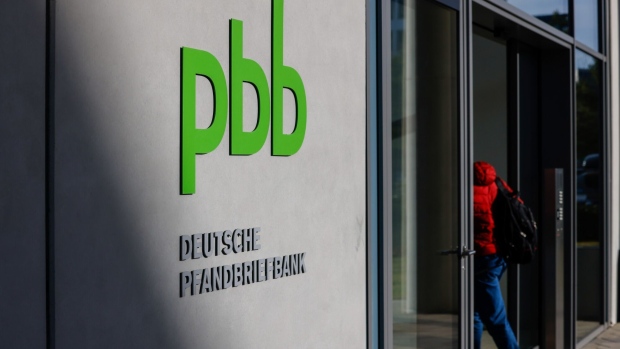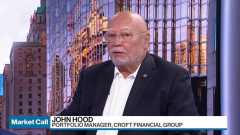Jun 18, 2024
PBB Sounds Out Investors for €500 Million Real Estate Debt Fund
, Bloomberg News

(Bloomberg) -- Deutsche Pfandbriefbank AG is sounding out investors for a real estate debt fund of as much as €500 million ($535 million), as the German property lender aims to diversify its business model.
The fund will be the inaugural offering of PBB Invest, a new asset management unit that new Chief Executive Officer Kay Wolf is counting on to increase fee income as the property lender struggles with elevated loan loss provisions tied to its exposure in US commercial real estate.
The new fund will invest in European real estate loans, spread across a range of asset classes from offices to logistics, with a target volume of between €300 million and €500 million, according to PBB management board member Pamela Hoerr.
“We are approaching selected investors to see what the sentiment is like,” Hoerr said in an interview. “It is a capital-preserving additional line of business.”
The move comes at challenging time for PBB, as its traditional lending business suffers from a slump in real estate markets, leading the bank to book €212 million in loan loss provisions and scrap its dividend for last year. Wolf’s efforts to revive the fortunes of the firm also include active balance sheet management, with PBB recently selling a $1 billion loan portfolio to Blackstone Inc.
PBB decided in 2022 to expand into asset management and has hired a small team of professionals. It plans to eventually offer a real estate equity fund as well.
Hoerr said PBB, which on average does €8 billion to €9 billion in new business per year, will profit from its long-standing lending relationships in real estate markets.
“We have a good network and a good pipeline of financing deals that we can draw on,” she said. “We want to no longer use the pipeline just for our own book, but also for the debt fund.”
The lender will target institutional investors from Germany, such as insurance companies and pension funds, for its offering, she said.
Several of them are still licking their wounds after being burnt by the decline of landlord Adler Group SA and the Signa real estate conglomerate of Austrian investor Rene Benko.
Read also: How a Small German Lender Helped Fuel a Giant Property Bubble
“We are observing that family offices, for example, are slowly starting to invest in the real estate markets again after the correction of the past two years,” Hoerr said. “So it might prove to be a good time to start a debt fund.”
--With assistance from Jack Sidders.
©2024 Bloomberg L.P.






